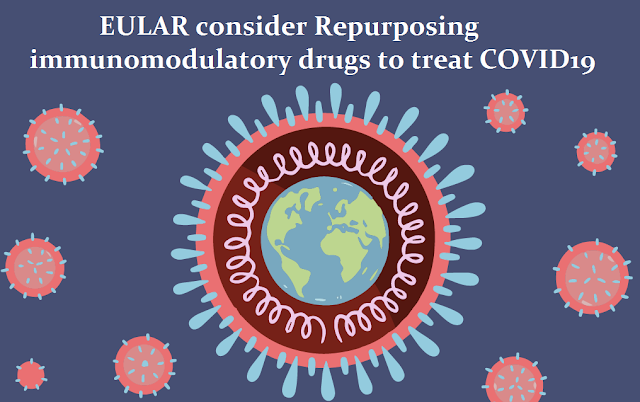EULAR has published new points that consider the utilization of immunomodulatory drugs within the fight against severe COVID-19.
COVID-19 infection caused by the SARS-CoV-2 virus. Since the virus emerged at the top of 2019, COVID has caused a worldwide pandemic. COVID-19 are often mild, or sometimes without symptoms in the least. But it can cause severe disease, respiratory problems in result, organ failure, and death.
Immune mechanisms research has shown that people infected with severe COVID-19 have widespread inflammation. early in the pandemic, many immunomodulatory anti-inflammatory treatments mostly use in people with rheumatic and musculoskeletal diseases (RMDs) was suggested as a possible treatment for people infected with severe COVID-19.
Rheumatologists are conversating every day about the use of immunomodulatory drugs. These are produced to treat the inflammation caused by autoimmune diseases like atrophic arthritis. A EULAR task force was set up to develop a group of latest points to think about to rely on guidelines and advice to using these medicines to treat COVID-19. The task force included rheumatologists, immunologists, hematologists, pediatricians, patients, and other health professionals. They prepare the published evidence on the uses of immunomodulatory remedies to treat severe COVID-19.
The 14 points to think about are divided into two categories: pathophysiology, and immunomodulatory therapy. Pathophysiology is about the disease itself. Immunomodulatory therapy is about how we'd use extant medicines from the section of rheumatology to treat severe COVID-19. These give specific advice about which treatments to use at what stages of the disease. the image is changing very speedily, which suggests there are some areas of uncertainty. EULAR aims to update very soon the recommendation in response to raising knowledge and evidence both about the disease and newly available trials with targeted anti-inflammatory drugs.
These findings don't apply to people living with RMDs who are taking immunomodulatory treatments for rheumatic disease. Separate recommendations are available for the management of individuals with RMDs within the context of the pandemic.

